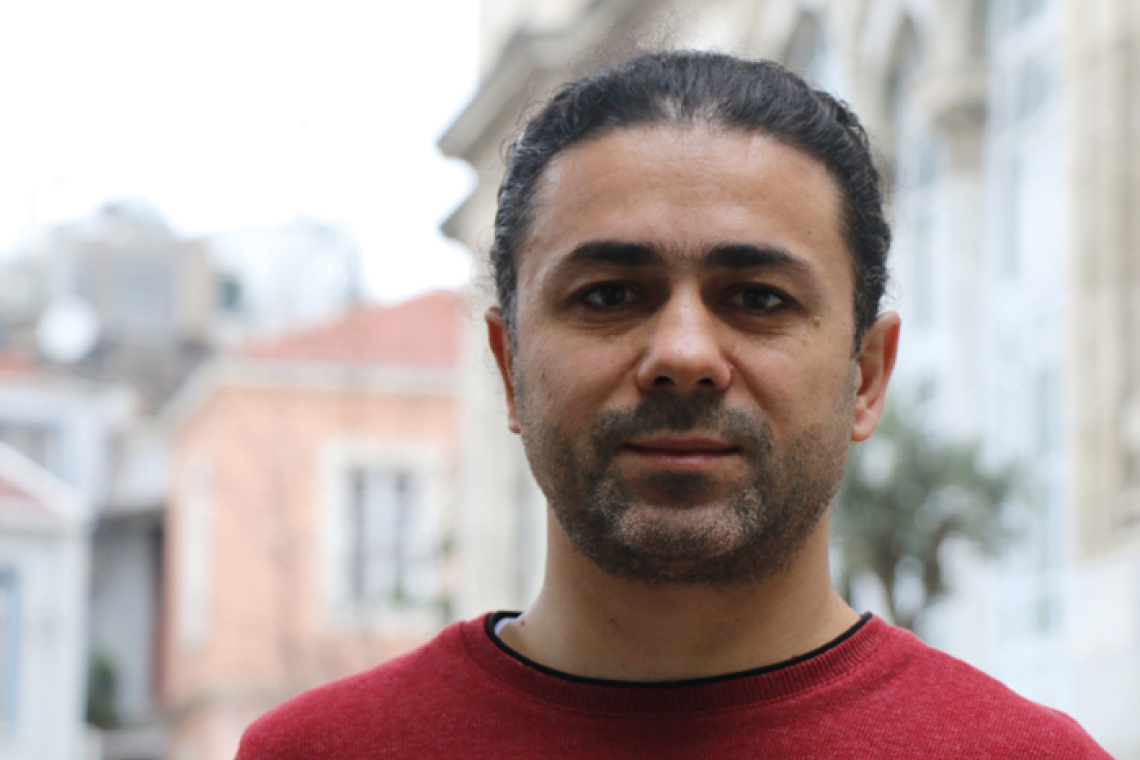In Turkey’s stifling enviornment where the freedom of the press is increasingly under siege, the voice of Sedat Yılmaz emerges from the confines of his unjust imprisonment. Yılmaz, an editor of the Mesopotamia Agency (MA), finds himself incarcerated not for a crime committed, but for his journalism. From behind bars, he shares his views on the craft through the review of a book on the profession.
By SEDAT YILMAZ
SİNCAN - In a compelling book I delved into, which discusses the significance, value, and sustainability of journalism, I stumbled upon a poignant observation by Hannah Arendt (New York: Viking Press): "In a world that's perpetually changing, never chart your course without journalists; for without them, we can never truly discern our place."
This quote underscores the role of journalism as a societal and individual compass. I extracted it from Michael Schudson's 'Why is Journalism Important?', beautifully translated into Turkish by Peace Scholar Gülseren Adaklı. This enlightening book serves as a reminder to us journalists of our inherent responsibilities and the foundational essence of our profession. It offers a reflective journey through the various facets of journalism, its structure, the challenges of media impartiality, its significance, technological influences, evolving realities, and its prospective future.
The book accentuates the pivotal role of professional journalism in cultivating a democratic framework. It underscores the imperative for journalists to be accountable to their readership. A journalist, entrusted with a public mandate, ought to be "assertive in research, bold in drawing parallels, and courageous in challenging those wielding power." This sentiment, I believe, resonates even more profoundly in today's context.
Highlighting the prevailing global political, social, and economic landscapes, the book reiterates our responsibility, emphasizing, "Given the current circumstances, there's an amplified need for journalism that portrays facts more accurately, convincingly, and assertively than ever before." Drawing from the book, "Just as a carpenter's craft is to construct homes, a journalist's craft is to report." But the question remains: who reports, and how? The book offers insights, referencing American sociologist Gaye Tuchman: "The discernment of what constitutes news is the clandestine skill that sets journalists apart."
The narrative suggests that journalists should transcend mere event outcomes, delving deeper into underlying causes and maintaining an investigative stance. It lucidly outlines the journalist's role, suggesting that "proclaiming the advent of an apocalypse is one thing, but advising on the best escape from such a catastrophe is entirely another."
A particularly intriguing section of the book delves into 'advocacy journalism'. Schudson defines it as journalism that "proposes or hints at an action plan," effectively quelling many debates. He posits that the essence of 'advocacy journalism' is "to confront power with the unvarnished truth."
Pressures on Journalists
Schudson doesn't shy away from addressing the administrative pressures journalists face. He notes, "Journalistic research faces varying degrees of pressure, from restricted access to news sources to a spectrum of pressures that span insults, harassment, threats, physical assaults, imprisonment, and even murder." Schudson characterizes the perpetrators of these pressures as:
"Dictatorships that overtly oppose freedom of expression and the free press, and 'illiberal democracies' where elected leaders set their sights on independent media for their onslaughts."
Highlighting the duty of journalism to monitor both elected and appointed public officials, Schudson elaborates: "Journalism shines a light on the triumphs, failures, and indiscretions of these public servants. While some of these investigations might be spearheaded by opposition parties or NGOs, no institution can match the consistency and intellectual independence of the professional press. This, in essence, underscores the paramount importance of journalism."
While I won't delve into every detail of the book, I wholeheartedly recommend it to my peers and even to those who seek to confine us.
Happy reading.
Editor of the Mesopotamia Agency (MA), journalist Sedat Yılmaz, has been incarcerated in the Sincan No. 2 Type F High-Security Closed Prison since May 3rd, following an investigation initiated by the Ankara Chief Public Prosecutor's Office alleging "membership in an organization". The formal charges against Yılmaz are yet to be drafted.
*Why is Journalism Important?, Michael Schudson, Translated by: Gülseren Adaklı, Published by: UM:AG Investigative Journalism Foundation, 2022.



